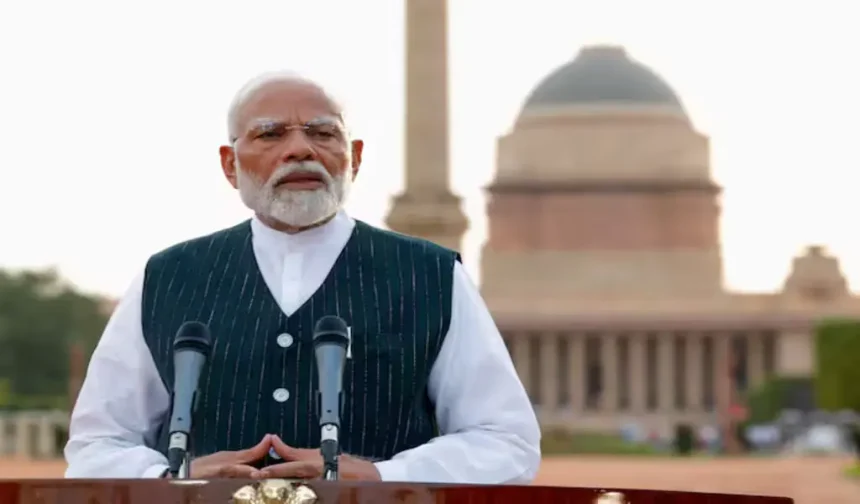(CTN News) – A statement made by Indian Prime Minister Narendra Modi on Friday said that Pakistan was attempting to maintain its relevance by engaging in “terrorism” and “proxy war,” but that such a policy would never be successful.
The nuclear-armed South Asian neighbors have tense ties, and India has accused Pakistan of supporting Islamist terrorists fighting against its administration in Kashmir for decades. Kashmir is a province that both India and Pakistan claim in full but only govern in part.
At an event held to commemorate the 25th anniversary of India’s brief military confrontation with Pakistan in the Himalayan area of Kargil, Prime Minister Narendra Modi delivered a speech. The bitter adversaries have also engaged in three wars, two of which were fought over Kashmir issues.
On the other hand, Modi said that Pakistan had “not learned anything from its history,” even though it had failed to advance its ambitions on several occasions.
“I would want to convey to these individuals who support terrorist activities that their heinous schemes will never be successful…Our courageous (forces) will put an end to terrorism, and the adversary will get a response that is commensurate with their actions,” he said.
There have been past instances in which Pakistan has refuted similar allegations made by India, stating that it only offers diplomatic and spiritual assistance to Kashmiris who are seeking self-determination in a territory that is mostly Muslim.
Towards the end of the day on Friday, Pakistan’s Ministry of Foreign Affairs issued a statement in which it expressed its unwavering determination to “protect its sovereignty against any invasion of its territory.”
“While Pakistan is ready to counter India’s aggressive actions, it remains committed to promoting peace and stability in the region,” according to the foreign ministry’s announcement.
According to the official name of the province, Jammu and Kashmir, there has been a recent surge of terrorist strikes in the Jammu region, which is mostly Hindu. As a result of these attacks, roughly a dozen Indian troops have been killed this year.
The diplomatic connections between India and Pakistan were reduced in a tit-for-tat action in August 2019, after New Delhi decided to revoke Kashmir’s special status and partition it into two federally managed regions. As a result, relations between the two nations have been mostly frozen.
An airstrike was carried out by India on what it said was a terrorist base in Pakistan after it was determined that Pakistan-based militants were responsible for the suicide bombing of an Indian military convoy in Kashmir. This led to a deterioration in relations between the two countries.
At the beginning of this year, Pakistan asserted that there was credible proof linking Indian operatives to the deaths of people on its territory. India, on the other hand, characterized these allegations as “fake.”
The Indian Foreign Minister, Subrahmanyam Jaishankar, said one month ago that India will search for a solution to the problem of cross-border terrorism, which “cannot be the policy of a good neighbor because it is not acceptable.”
Source: Reuters














